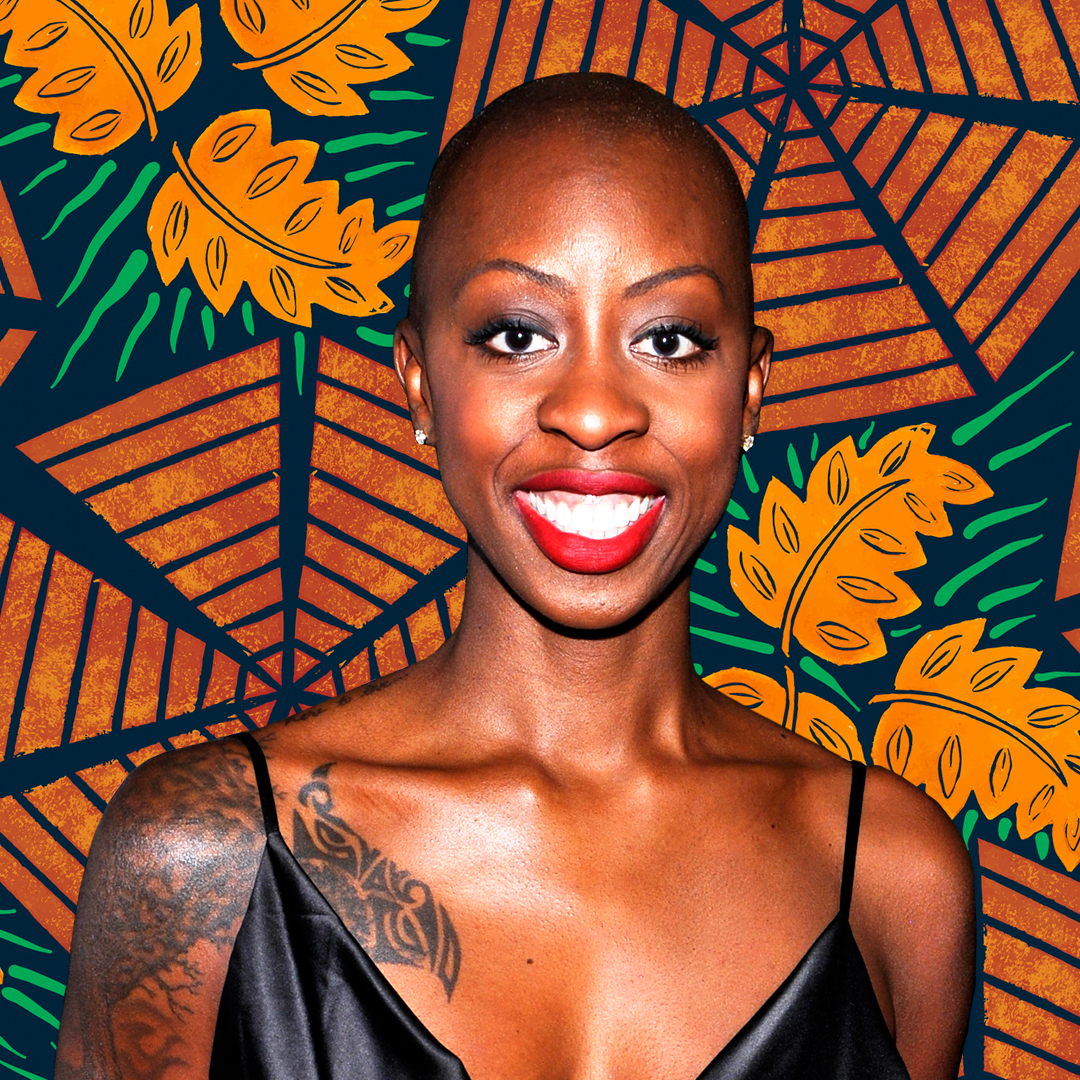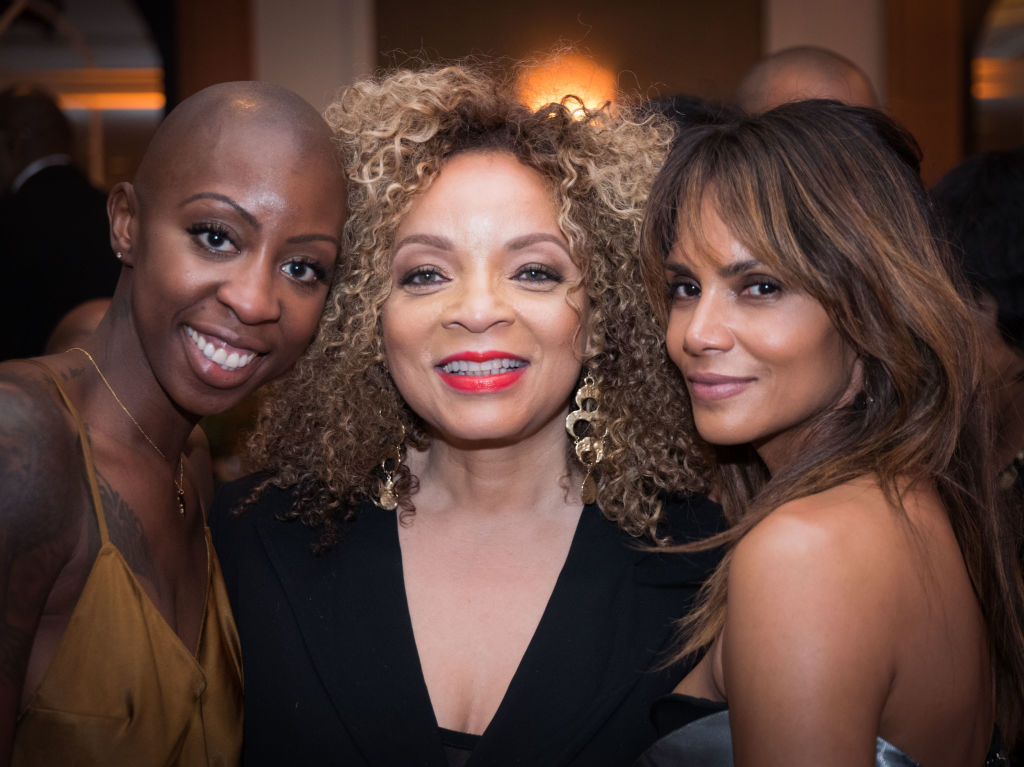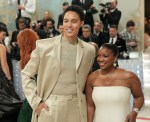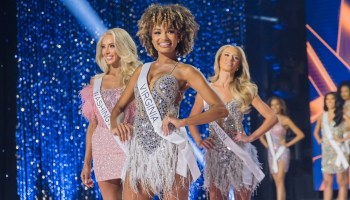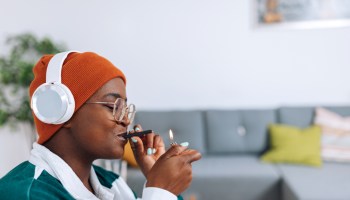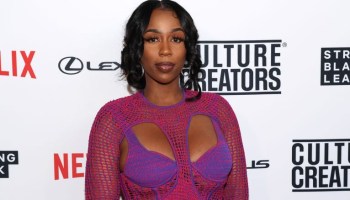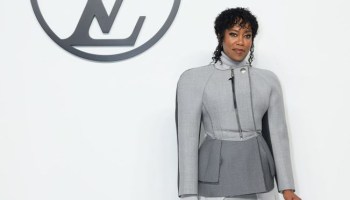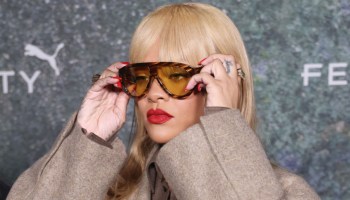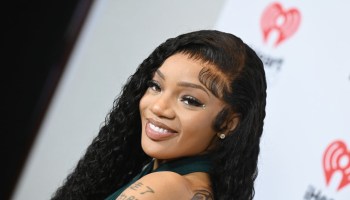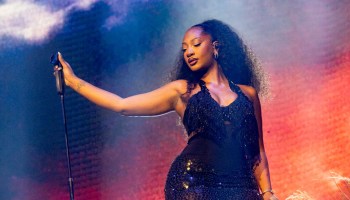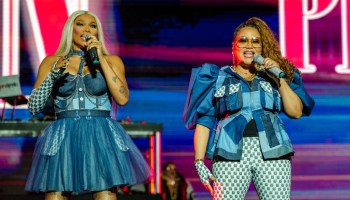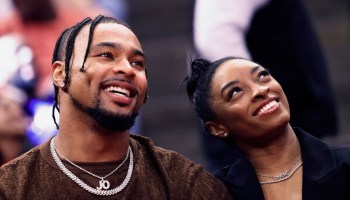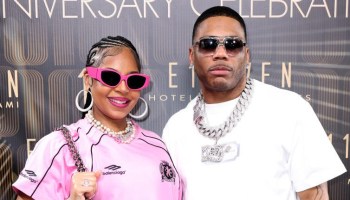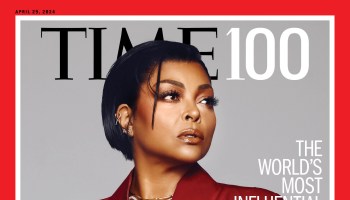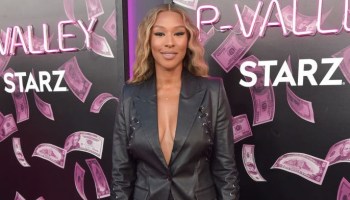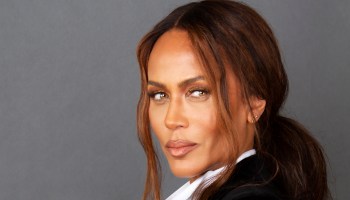During Women’s History Month we reflect on the impact, significance and value of trailblazing women who have changed the narrative and burst through glass ceilings that once were our ancestors’ wildest dreams. However, when discussing these incredibly inspiring and groundbreaking achievements black women are far too often absent from the narrative. Outside of tokenism and a “select few,” Black women are severely underrepresented in mainstream media. That’s why one actress turned film director, Oge Egbuonu, decided to produce a documentary to allow black women (and young ladies too) to discuss their own experiences with seeing themselves (or not), and how it impacts their self-image.
“I think I’m trying to repair the damage that has been done for half a century on stories and images about Black women,” Egbuonu said in an intimate phoner with HelloBeautiful to discuss her new film (In)Visible Portraits. The acclaimed independent film, with the tagline “Healing begins when voices are heard,” made a splash at festivals last year. Despite the pandemic, it was picked up by cable network OWN and aired this weekend.
Read more from Egbuonu on her intention to allow everyday black women to see themselves, black sisterhood in Hollywood with Halle Berry and overcoming imposter syndrome.
Talk to me about why you think now was the time for a piece like this to really explore Black women and our struggles and our triumphs in the face of not really always being included or propelled to the forefront.
Oge Egbuonu: I started working on the documentary in 2017 and finished at the end of 2019. I just felt like there wasn’t anything like [“(In)visible Portraits”]. I really wanted to create something that was life affirming for Black women and girls. I wanted to create a love letter, or a call to return to love for Black women and girls, but also serve a re-education for everybody else. I wanted to create something that felt timeless; no matter what point in history, someone could watch this documentary and either learn from it or, in an unfortunate sense, it still be relatable.
When I say unfortunate I mean that I’m hoping, 5 to 10 years from now, we won’t still be won’t be labelling black women as mammies and welfare queens and gold diggers. I just really wanted to create something that held reverence for who we truly are and not perpetuate the narratives that are very dehumanizing and oppressive to black women.
I think it’s so important. Talk to me about casting and including scholarly voices Joy Angela DeGruy, Patricia Hill-Collins and women like that while also pairing them with young girls. I think that was a really interesting approach.
Oge Egbuonu: I was very clear from the beginning that I really wanted it just to be relatable so I made the decision to use, who we call, everyday people: people who are not ‘celebrities.’ So the people that we see in the documentary, that are scholars and experts and authors and historians, are all people whose work I’ve studied and read during the research phase.
There was this center in Watts that I fell in love with – WLCAC. I met with the executive director, Sheila Thomas, who is in the documentary and I basically just told her my vision. She was looking at me with tears in her eyes, “Let me be very clear to you. So many people come into our communities and they exploit us. They take our stories and we never hear from them again, so I can introduce you to these women but it’s up to you to build rapport and to build relationships with them where they trust you enough to give you their stories.”
So I went about getting to know these women and girls. I made it clear, at the end of the day, “You don’t have to say yes. It has just been an honor getting to know you and getting to meet you.” Luckily for me, they all said yes at the end so that’s how we got to the point of seeing the women and the girls you see in the documentary.
So awesome. Part of the reason why I am interested in journalism is I also recognize the responsibility and the duty that we have of sharing our own stories from our own mouths and our own perspectives so can you talk to me a little bit more about where you think you get this sense of responsibility to Black women?
Oge Egbuonu: For me, it’s about dismantling the oppressive and dehumanizing stereotypes that are placed against black women. Understanding my role as a storyteller and as a filmmaker it is… my duty to cultivate space for our healing and I think that healing comes in so many forms; whether it’s through music, whether it’s through talk therapy, whether it’s through the films that we see. I take it very seriously that the content that I create, for me, has to serve as a mode of healing for the people I am creating it for.
In my research, I saw something that I thought was interesting and cool. We kind of first met you as an actress and then as a producer, but Halle Berry encouraged you to take the jump and be director to tell the story?
Oge Egbuonu: Yeah, I met Halle a few years back by a guy named Kenneth Walker [who] was the lead hairdresser on our film Loving. He became like a father figure to me and a dear friend. I was flying to L.A. for a few days and he wanted to do lunch on a movie set that he was doing. I was like, “ I don’t want to go on a movie set, I’m not really into that.” He was like, “I want you to meet someone.” Eventually, I just said yes I’ll go. I go to the set and it’s Halle. He introduces us and we just instantly click. Halle just felt so familiar. We connected on a very spiritual level and we became super close. Halle has become not only my friend but she is family to me.
When I was granted… my directorial debut with this film, I was really afraid. I was like “I’ve never directed before, I didn’t go to film school.” Everything I know about the industry thus far up was self-taught. So I was very nervous for the role, but also as director with this subject matter— one that’s very dear to me as a Black woman. I was in her house crying… like “I don’t know if I can do this. I don’t want to fail.” She looked at me like “No, you’re doing this and just know you’re not going to fail because you have the full support of me and if I put my team behind you, you’ll have them.” It was that sense of community; it was that sense of a safety net that she created for me.
Wow, that’s true friendship. Impostor syndrome and the fear of “The Upper Limit,” this concern of “I want to challenge myself, but I am just not sure if I am prepared.” What advice do you have for someone who is reading?
Oge Egbuonu: When I was in college at the University of Houston, I thought I wanted to pledge AKA because all the girls were doing it and my brother was an Alpha. I remember one night they called me at 2 am and was like “Meet us at this location at 3 o’ clock.” So I get there and it’s me and four other girls and… just a box outside with a note that said “This is a science project. It needs to be done by 7 am and delivered back to our house.”
There was no way that we would’ve gotten all that done in three hours so I convinced everyone to leave. One of the girls texted me “You ruined your chance. You will never be an AKA.” She was literally berating me. I remember… wailing in my bedroom at 4:30 in the morning and my mom has to come because I woke her up from crying so hard. Eventually, I cried myself to sleep.
My mom taped a note on my [bathroom] mirror [that] said “The only goal you cannot accomplish is the one you don’t go after.” I took that note when I moved to L.A. nine years ago. The only advice that I could give is just that.
Last year we saw some firsts for Black women in film. We had Nia DaCosta as the first Black woman to direct a Marvel film, Ava DuVernay as the first Black female filmmaker to receive the Dorothy and Lillian Gish prize. How do you feel Hollywood has changed since 2015’s #OscarsSoWhite protests?
Oge Egbuonu: I don’t think it has changed at all. I think it’s in the process of trying to change. I think it’s one thing to present representation, it’s another thing to actually implement it into the systems. It is cool to give a Black woman to direct a Marvel, but how many other Black women are you giving that opportunity to? So for me this whole notion of diversity inclusion, I don’t buy into it. It is not sustainable. You cannot insert a person of color or a Black woman into a system that is inherently oppressive and that is inherently built to dehumanize us. There is just no way.
In order for it to actually be sustainable you have to literally dismantle these current systems and build new ones that are inherently inclusive. If not, you’ll have the same thing over and over again. Until that happens, I think we’re going to see tokenism at best.
Wow, okay. So basically we need to strip the whole thing and start over. Rebuild it.
Oge Egbuonu: Absolutely.
You’re on the OWN network. Talk to me about how this opportunity came about and how it feels for you to have Oprah’s backing and to be able to utilize her platform.
Oge Egbuonu: Oh my God, to be a part of OWN to me is a full circle moment. Oprah was the first Black woman that I saw on TV that felt life affirming. So to be able to partner with OWN, own a film about Black women and it be my first film literally feels… surreal.
Last year I submitted the documentary to a few festivals. They rejected it. I had sent it to two studios and they were like ‘We don’t understand it. It doesn’t fill our slate.’ When you get those rejections, initially they felt like gut punches to me. It really bruised the ego. Then I had to realize that Hollywood doesn’t create culture, it follows it. I had to use those rejections as redirection.
I was like “Okay, I’m going to show you how to market it. I’m going to show you why this film is important.” So then I started to research how I can self-distribute the film. I went to my investor, Michael Myer who, is like an earthly angel for me and I was like “Listen, I know you put in close to a million dollars in this, I need you to trust me on this.” He was like, “I fully support it.”
I put a team together.It was really essential for me, bringing on Narrative PR because they really opened my eyes to certain ways that we could publicize this. I did it. We did it together.
It premiered on Juneteeth 18th in partnership with NeueHouse. Luckily for me, Martin Bower [from] OWN attended the premiere and fell in love. So, I’m just really grateful for trusting the journey and the process even when I don’t fully understand what the next steps are.
Bobby Pen: That’s that faith.
Oge Egbuonu: It gets hard sometimes, I’m not going to lie. But, yes.
More From Our “Power Issue”
Meagan Good: Sexy, Powerful & Unapologetic
How Oge Egbuonu’s ‘(In)visible Portraits’ Is Dismantling Stereotypes Against Black Women
7 Black Women Share Their Superpowers
WHM: These 5 Black Women Artists Empowered The Culture With Their Art
Women To Know: 17 Leading Black Beauty Brand Owners
